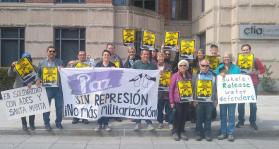“We March for the Freedom and Dignity of the Salvadoran People”
Salvadoran social movements marked the country’s Independence Day on Sunday by marching to demand an end to government corruption and human rights abuses. A broad coalition of unions, feminist organizations, human rights groups, and anti-corruption organizations made up the thousands-strong march, signaling growing discontent in light of recent corruption scandals and despite systematic attempts to repress the opposition.
Convened by the Popular Rebellion and Resistance Bloc (BRP), the march took place blocks from the official Independence Day parade, which featured thousands of uniformed soldiers and fighter plane and helicopter flyovers.
The largest march contingent called for an end to the State of Exception and the release of thousands of innocent people detained under the measure. Members of the Movement of Victims of the Regime (MOVIR), the Bajo Lempa Committee of Relatives of the State of Exception Victims, and Socorro Juridico Humanitario held posters with the faces of their loved ones. While the State of Exception is promoted by Bukele as a “war on gangs”, investigative journalists have reported that the 87 murders in one weekend in March 22 that served as the excuse for its implementation actually resulted from a collapse of secret government negotiations with gangs. The measure has been extended every thirty days since its implementation and has resulted in the arrest of over 80,000 people.
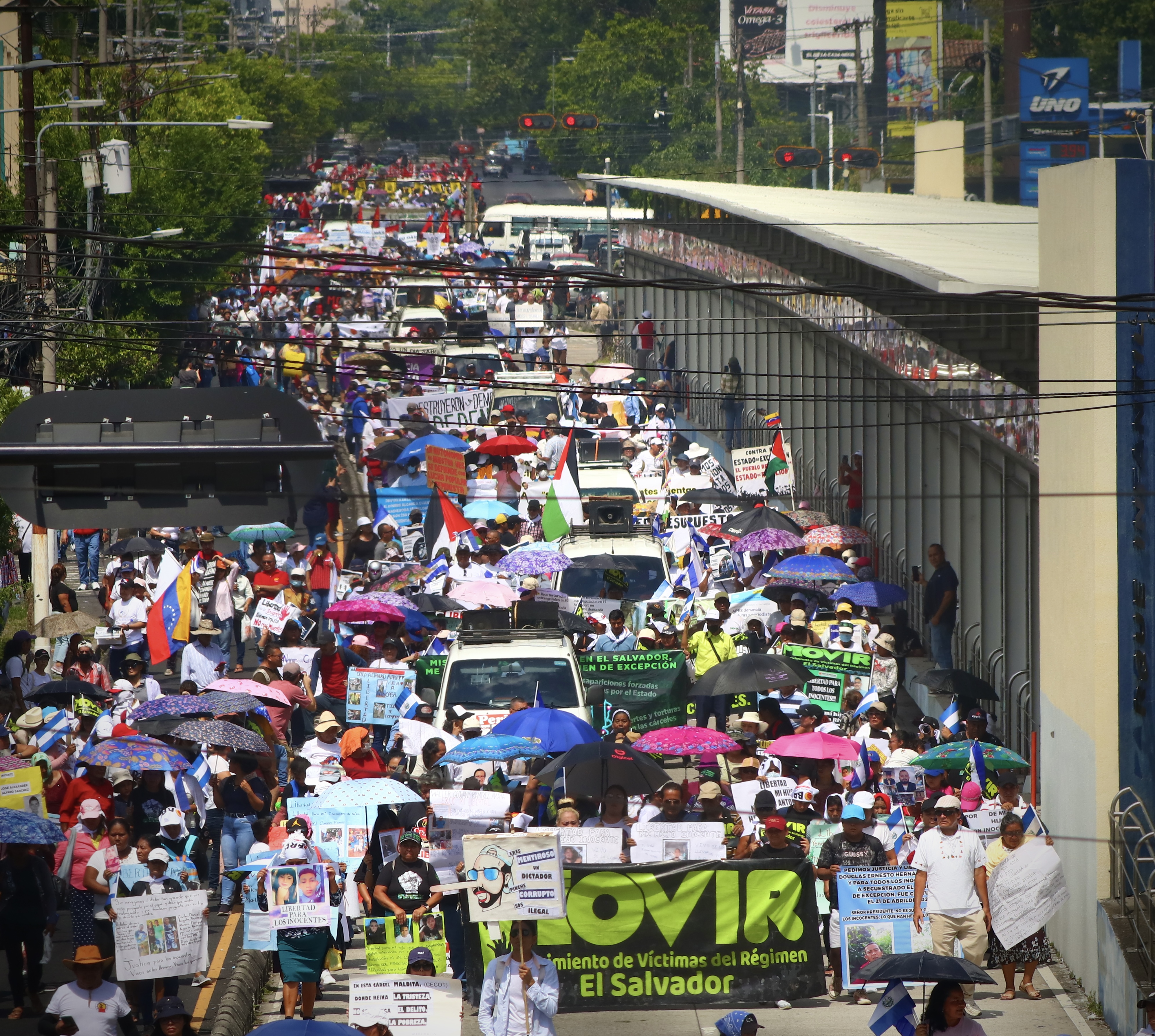
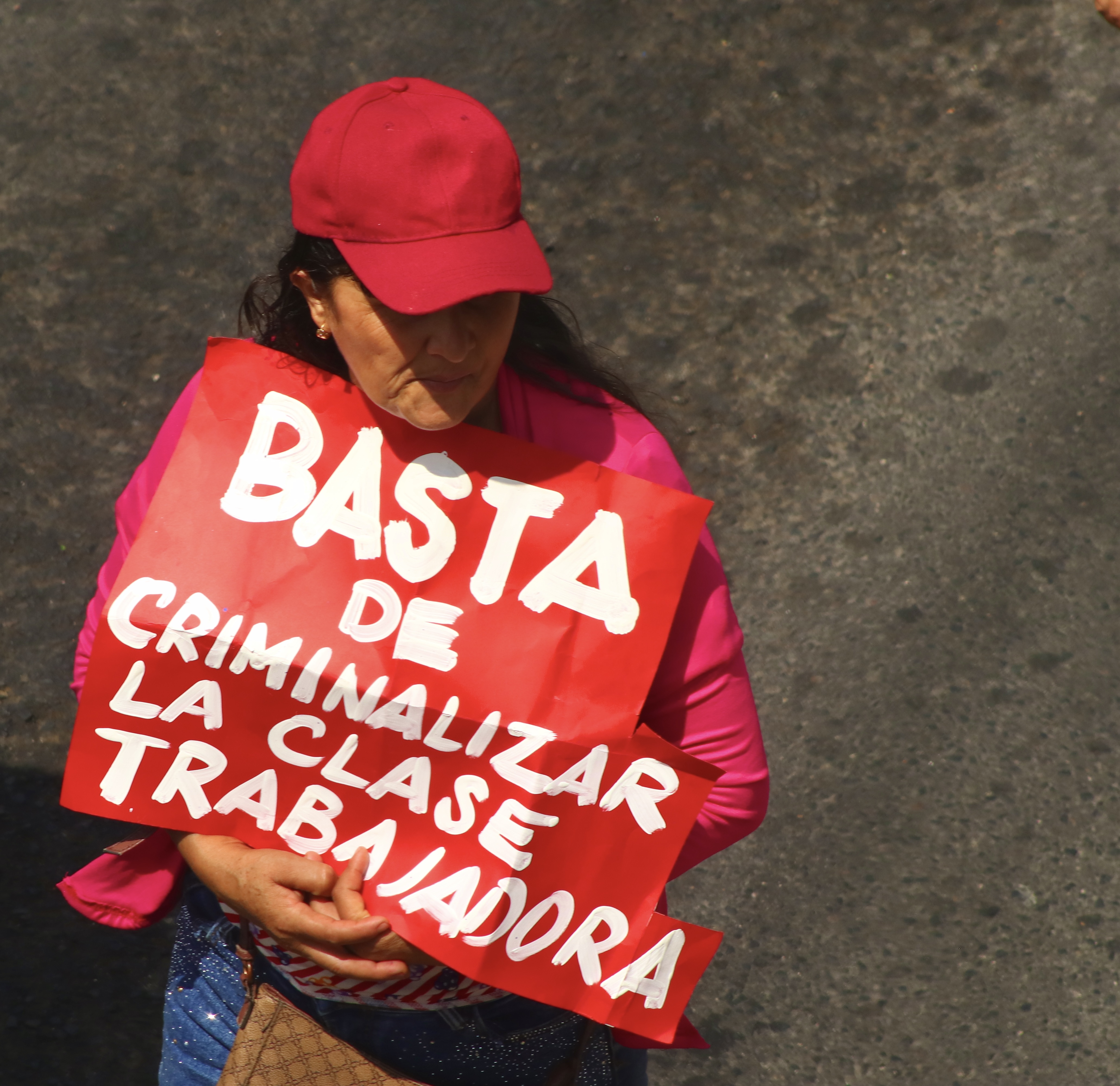

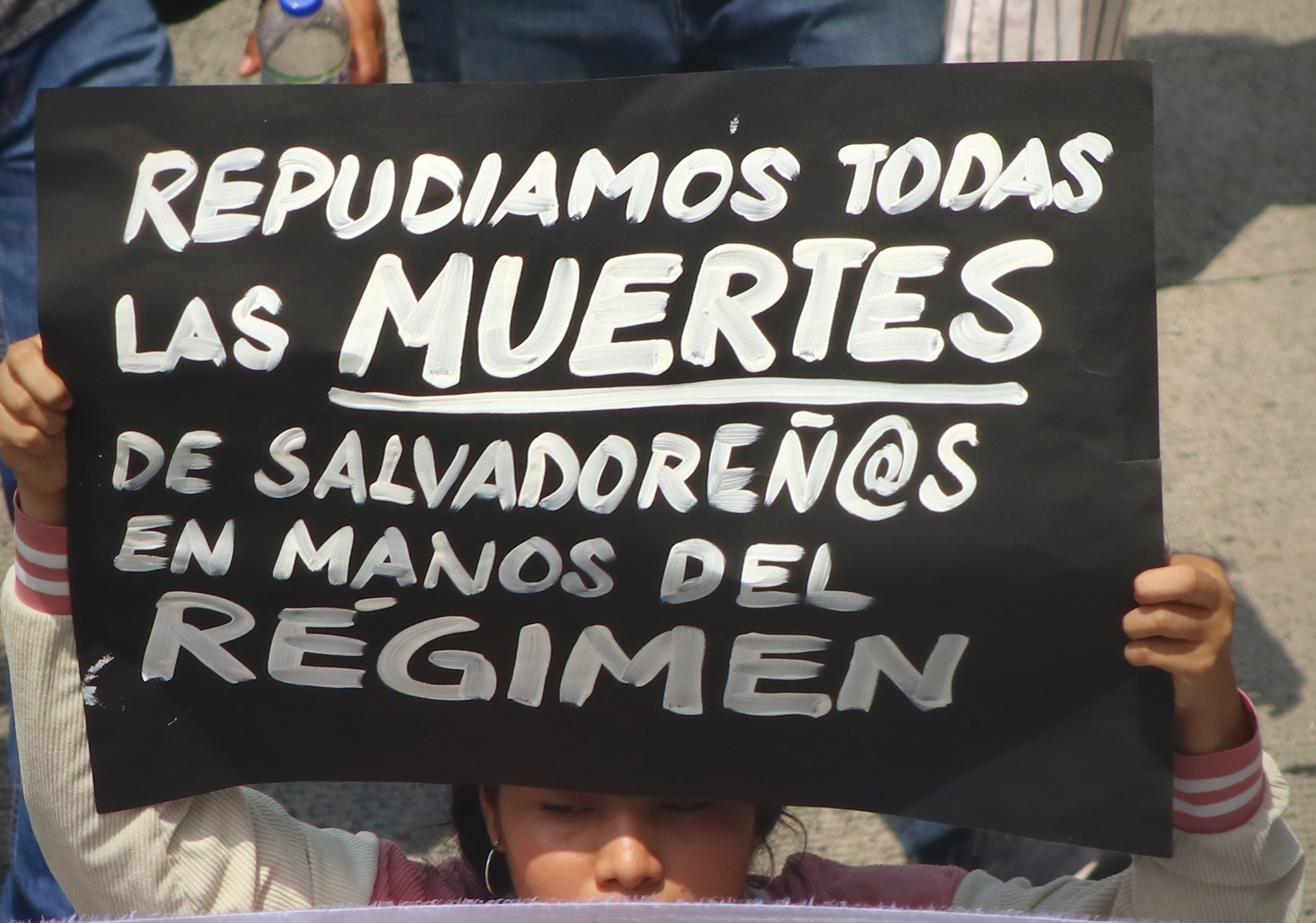
A July report on the State of Exception from El Salvador human and civil rights group Cristosal detailed “grave human rights violations, including imprisonment without conviction, deaths of infants and innocent adults” and the Inter-American Commission on Human Rights called on the government to repeal the measure earlier this month. According to MOVIR spokesperson Alfredo Mejia, whose group had one thousand members at the march, “We are marching against arbitrary detentions. We are marching against the violation of our human rights, for all of the victims of the regime, whether they are in prisons or not.”
Marching just in front of the leftist Farabundo Marti National Liberation Front (FMLN) political party contingent, the Committee of Relatives of Political Prisoners (COFAPPES) called for an end to political persecution by the Nayib Bukele regime. 21 people are currently on trial in the ASOCAMBIO case, including the former FMLN Minister of Security, Mauricio Landaverde. Following a COFAPPES pressure campaign, Landaverde and co-defendant Ramon Roque were released from pre-trial detention in August, eight months after receiving release orders in November 2023. On September 2, the trial was adjourned for ten days because 161 boxes of evidence, which had not been presented to the defense, could not be located.
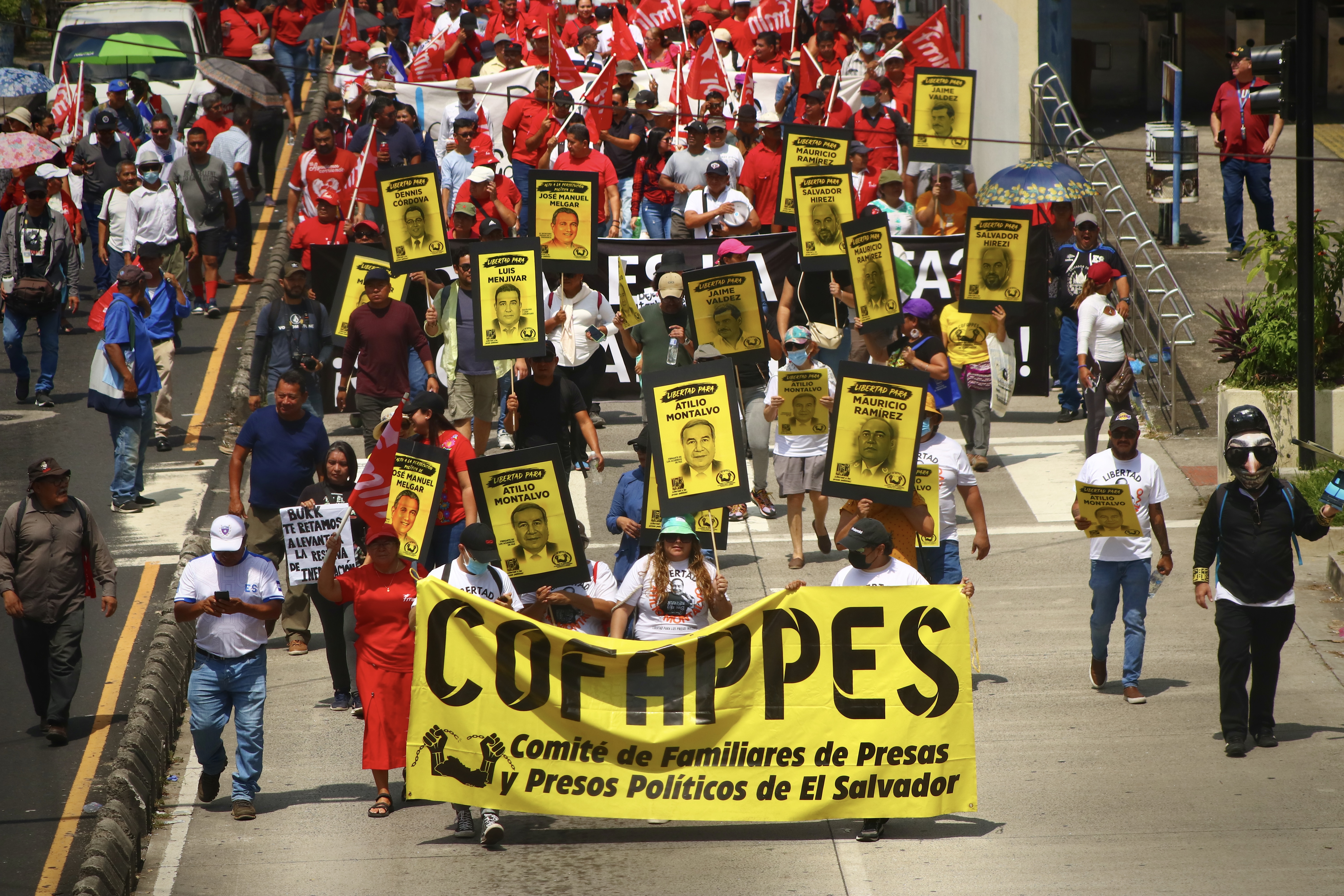
COFAPPES also called for the release of nine Alliance for a Peaceful El Salvador leaders who were arrested in the days leading up to Bukele’s unconstitutional second inauguration on June 1. Two of the detainees, Atilio Montalvo and Jose Santos Melara, are historic FMLN and social movement leaders. They both have serious illnesses and were recovering from recent operations when they were arrested. Silvia Montalvo, daughter of Atilio, called on the Director of Prisons to provide her father with the necessary healthcare. “My father, who is 72 years old, could die at the hands of the state.”
Mishandling of government funds was also a central theme of the march. A BRP banner at the front of the march referenced a $5 million helicopter purchased by the government to transport the president.
A group of families whose savings were embezzled by leaders of the government-linked COSAVI banking cooperative marched alongside a sign reading, “We are elderly. Are you just going to leave us in misery?” A Legislative Assembly proposal to investigate the case, proposed by opposition deputy Marcela Villatoro, was voted down by the Nuevas Ideas-controlled body.
“No More Corruption” signs permeated the march, as well as references to Bukele’s oft-repeated slogan, “There is enough money when nobody is stealing it.”
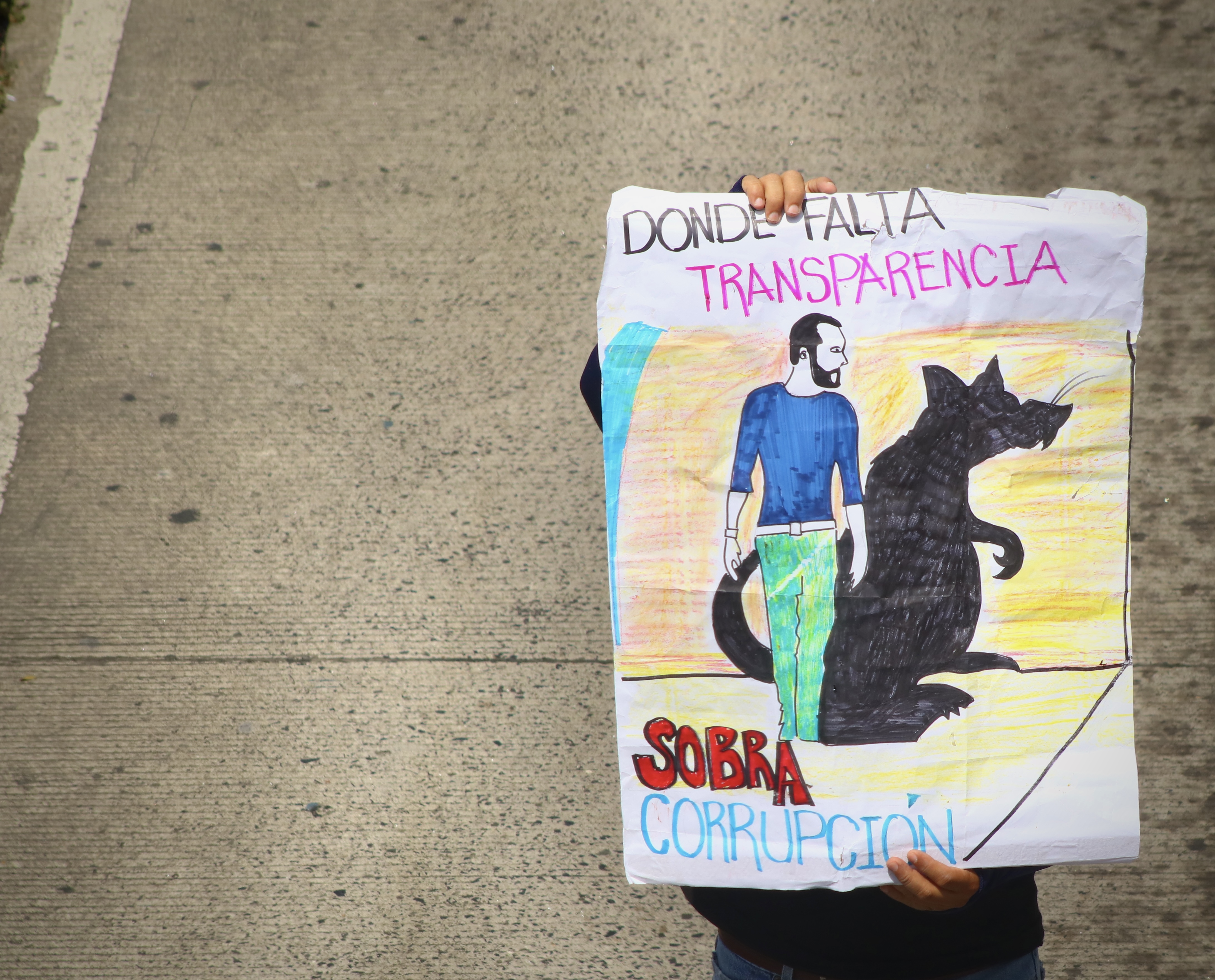
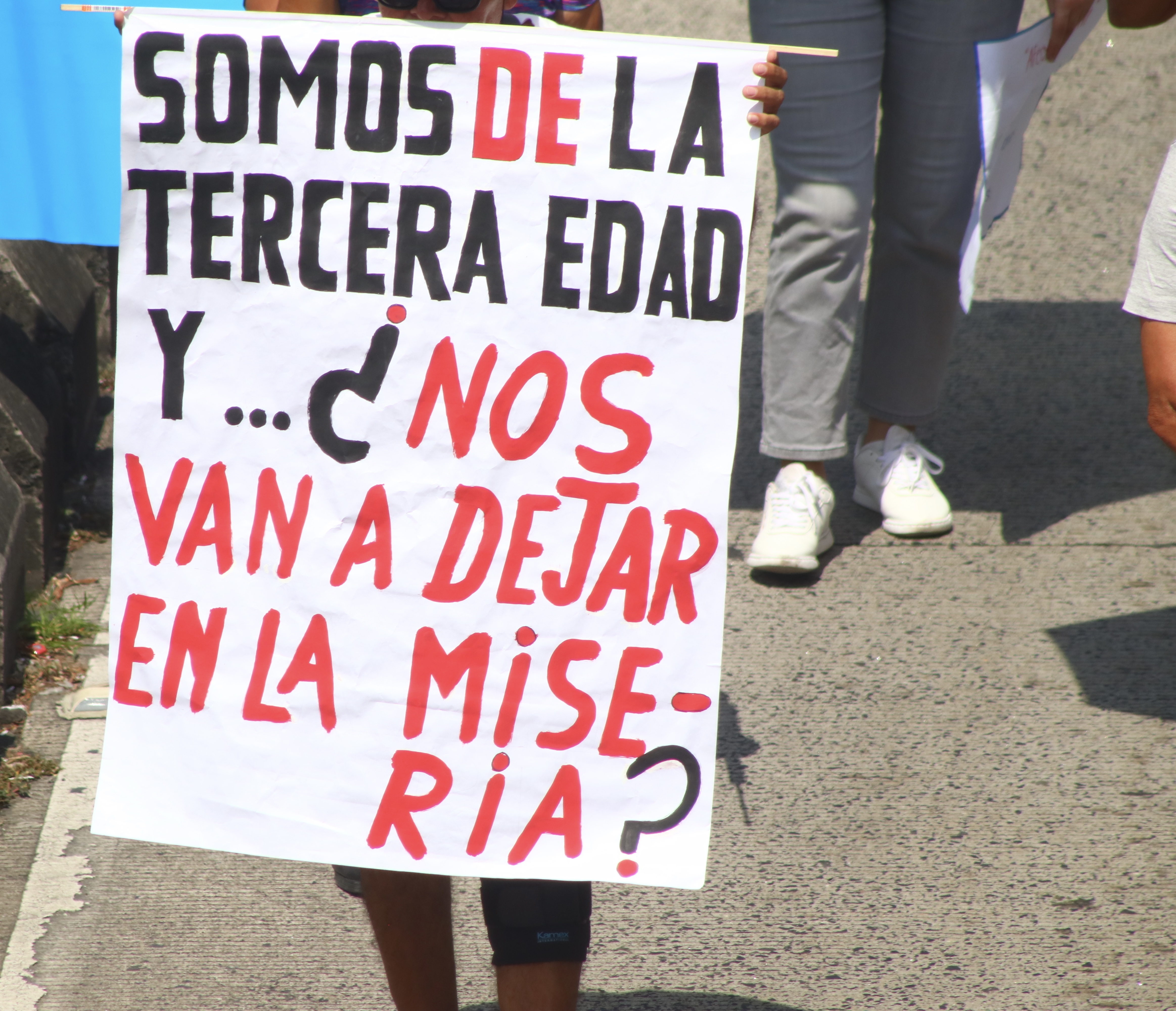
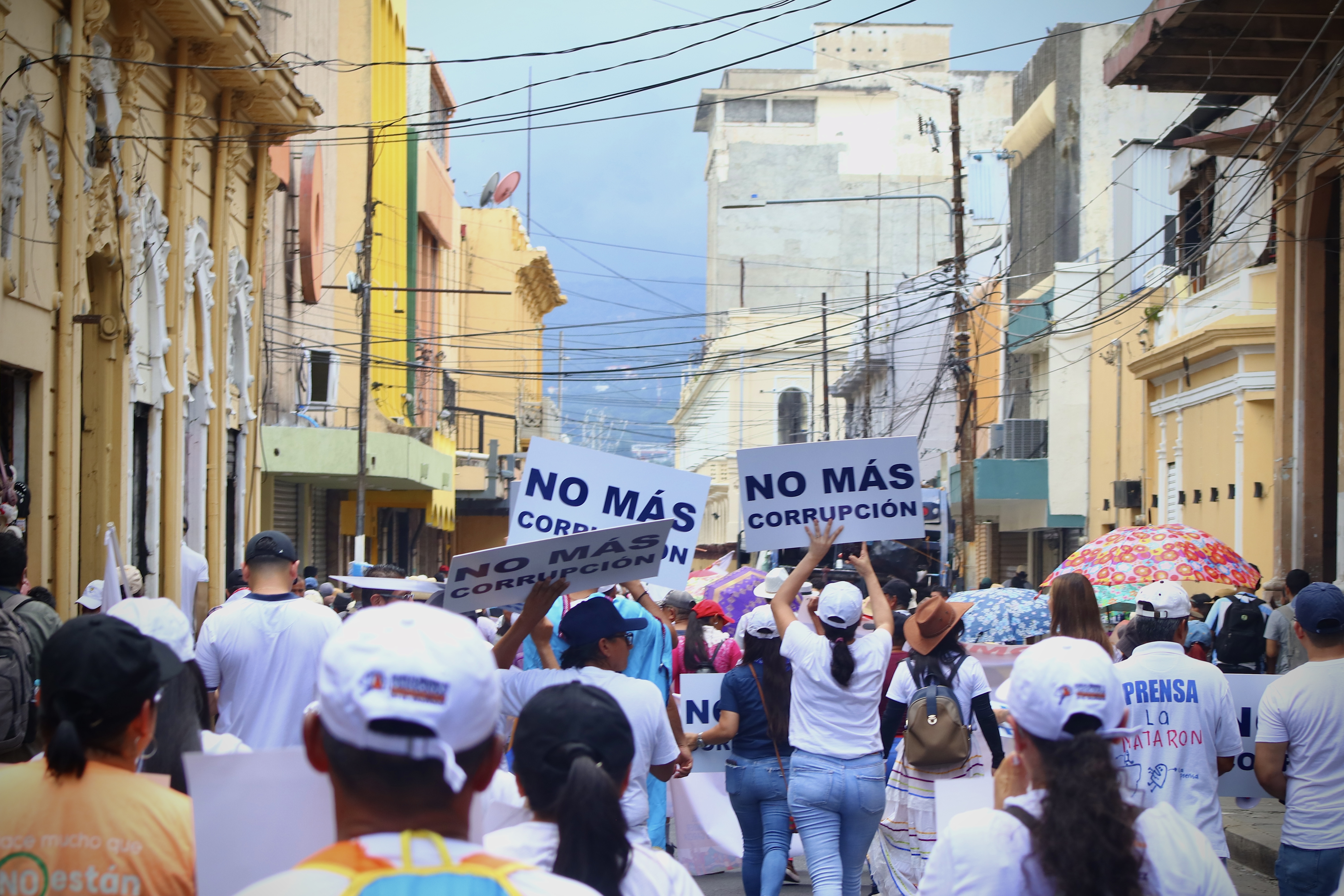
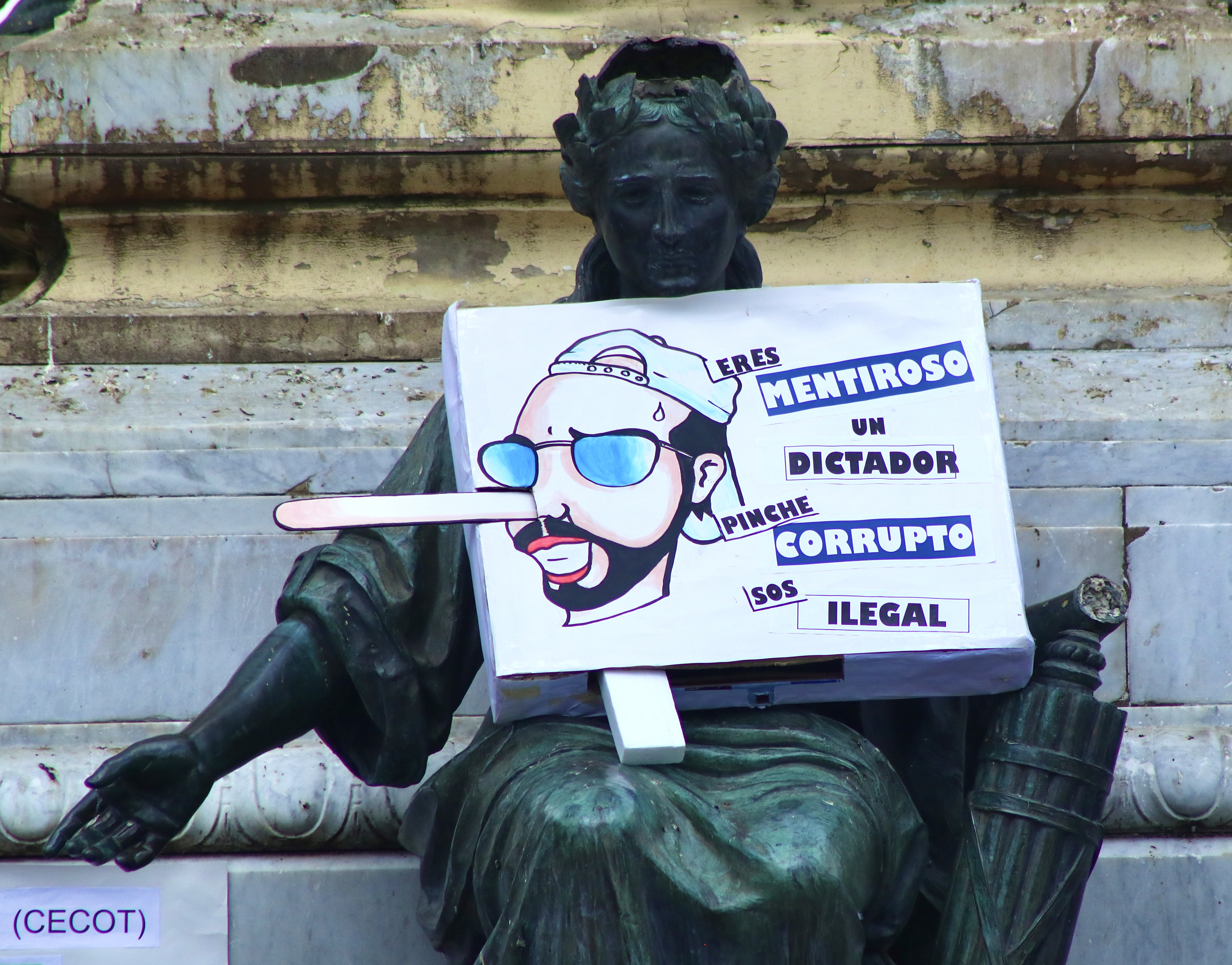
Highlighted by marchers with Salvadoran Student Force (FES), the government has failed to provide $47 million of budgeted funds to the public University of El Salvador. It has also prevented the return to in-person classes for years following the COVID-19 pandemic.
Blocs representing union federations, land defense movements, indigenous organizations, and displaced street vendors added to the march’s popular movement diversity.
Solidarity actions also took place in Switzerland, Mexico City, Washington, D.C., Chicago, Los Angeles, and San Francisco. In D.C., Salvadoran diaspora groups held a festival in the historically Salvadoran neighborhood of Mount Pleasant to demand the release of Salvadoran political prisoners and honor the 301 people who have died in prison under the State of Exception.
The Committee in Solidarity with El Salvador in Mexico, gathered at the Salvadoran Embassy in Mexico City denounced Bukele government tactics. “In the face of the high cost of living, the government's budget crisis, and growing discontent, the State of Exception has become an instrument for the criminalization of poverty and the opposition. Behind the triumphant discourse of the Bukele government, there is a reality of economic crisis, missing people, femicides with impunity, and shady pacts with organized crime.”
Ivania Cruz, a lawyer with the Community and Human Rights Defense Unit (UNIDEHC), a member-organization of the BRP, laid out the contradictions of the day’s events. “Today we are seeing both sides of the coin: on one side, the people who have had their rights violated and want to see a greater El Salvador, and [on the other side] the media campaign created by the government to entertain the masses and cover up the issues that should really be our priority.”
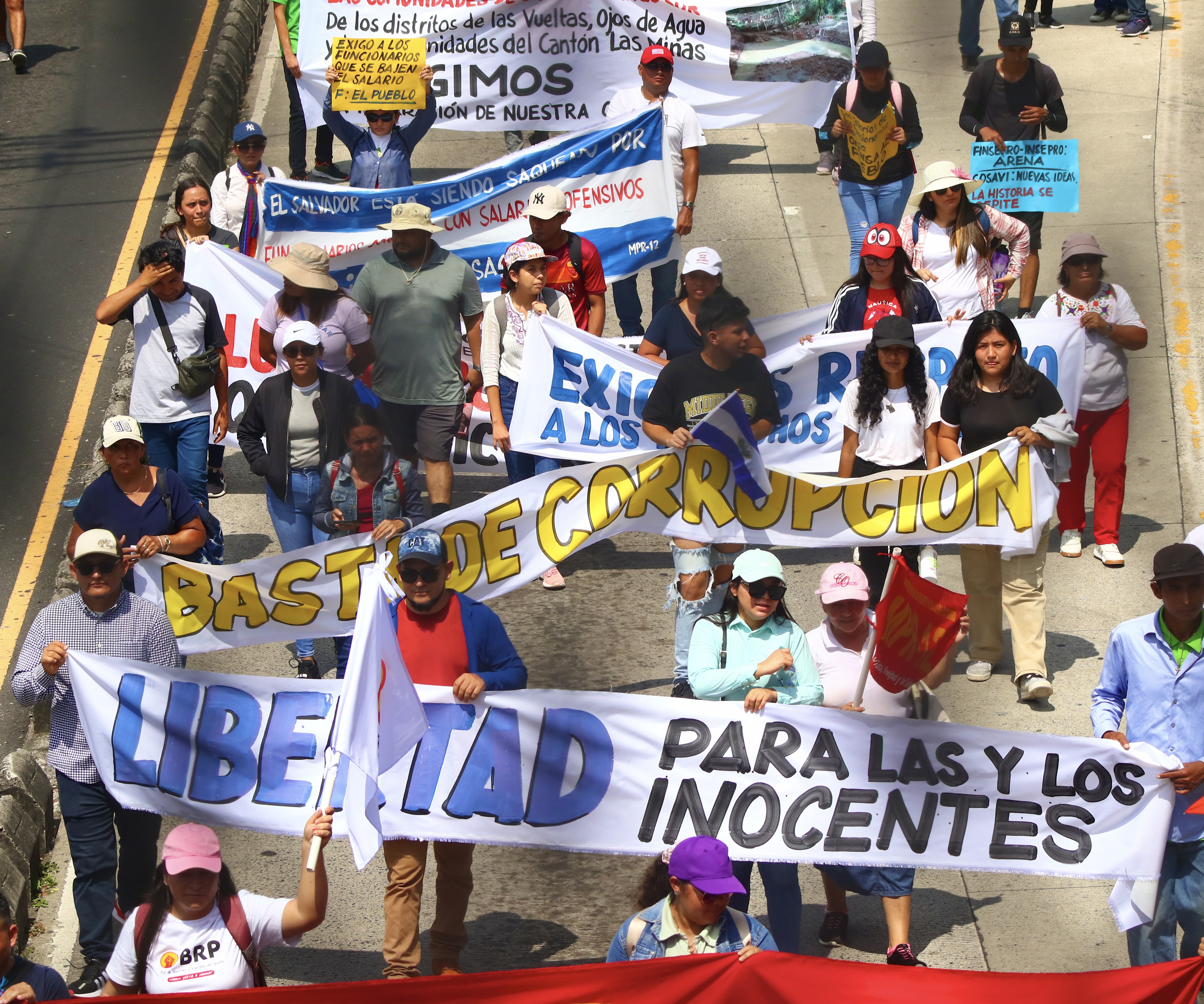
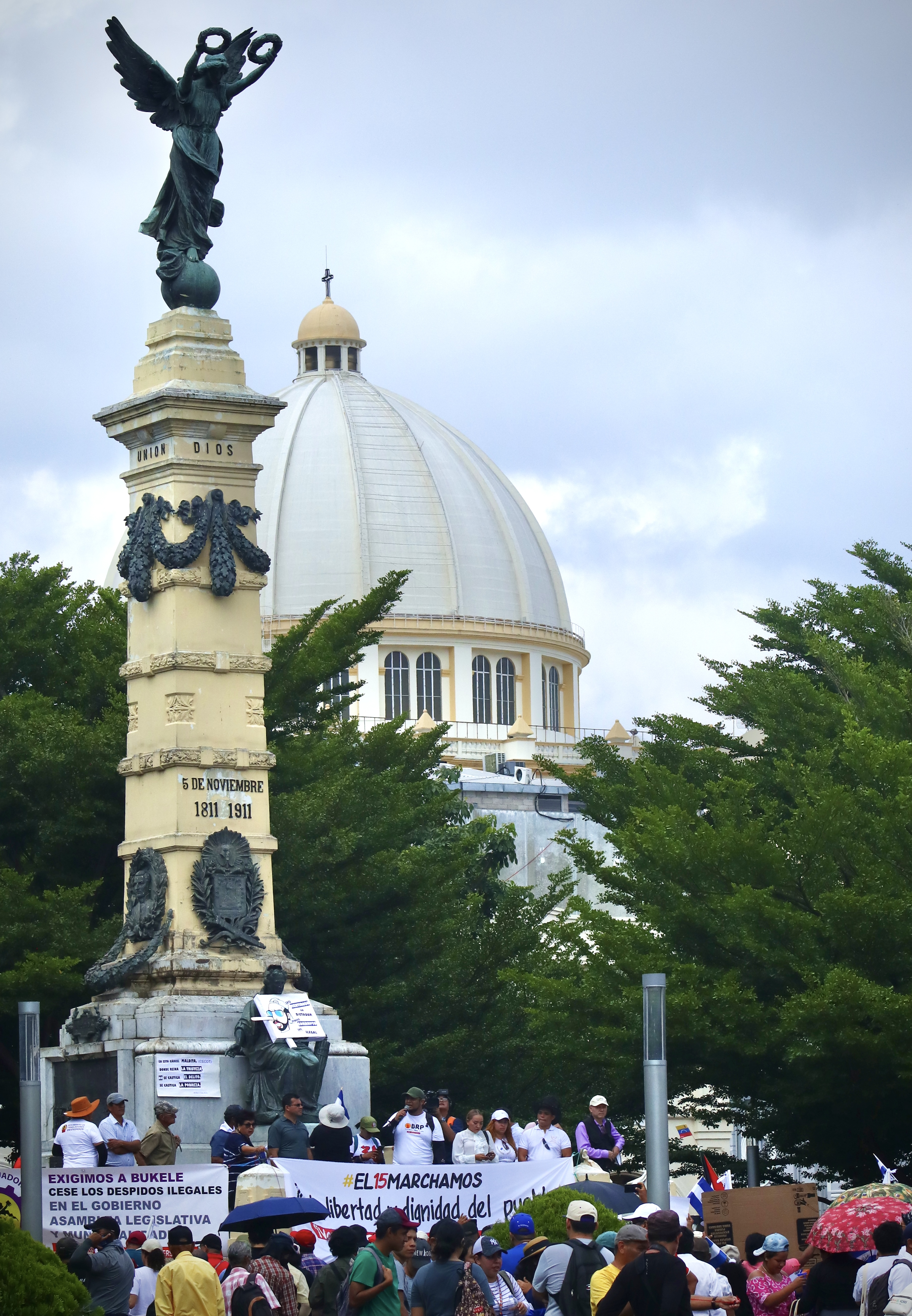
Photo gallery courtesy of CISPES

 "I am a CISPES supporter because continuing to fight for social justice and a more people-centered country means continuing the dream and sacrifice of thousands of my fellow Salvadorans who died for that vision.” - Padre Carlos, New York City
"I am a CISPES supporter because continuing to fight for social justice and a more people-centered country means continuing the dream and sacrifice of thousands of my fellow Salvadorans who died for that vision.” - Padre Carlos, New York City

